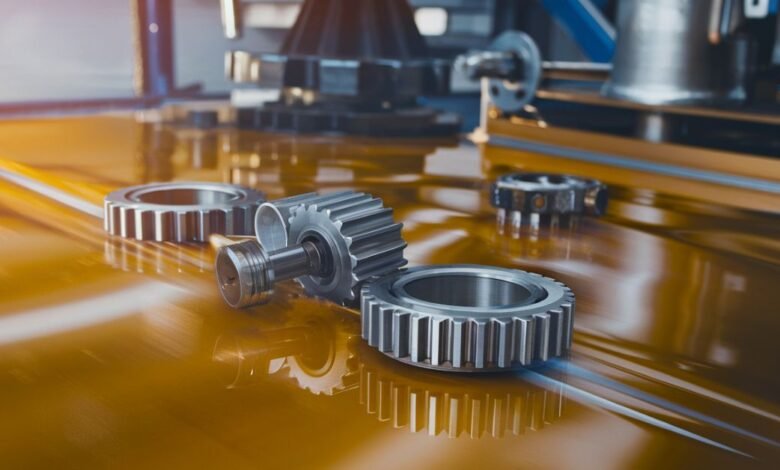Is Teflon Self Lubricating? Discover PTFE’s Slick Properties

Introduction
As any reader acquainted with popular cookery programmes knows, Teflon – or polytetrafluoroethylene – is the material that does not stick: but is Teflon Self Lubricating? The answer to the above question lies in its molecular structure which affords a smooth, low friction surface. Because of this feature, Teflon is often used in various industries where smooth low wear surface are desired.
Ever been puzzled as to how Teflon gets to stick to its slippery and slippery character? Many of you know this for non-stick cookware only.
Teflon cut mechanical friction in machinery and thus enhances efficiency and durability of parts and this makes Teflon a very important material for engineering and manufacturers.
What Makes Teflon Self-Lubricating?
What is fascinating about Teflon is it works as a self lubricant and this is in the chemical composition of Teflon. Teflon copes with the situation because it is Polytetrafluoroethylene (PTFE) that has carbon and fluorine atoms tightly bonded with each other to form a surface that is slippery. This special formulation of Teflon means that slipped surface does not require additional lubricants to retain low frictional coefficient. For this reason, sliding movements of the surfaces coated with Teflon take place easily thus minimizing wear and tear of machines and equipment. Indeed, this feature alone makes this technology very beneficial to industries that require low-maintenance efficient solutions.
Applications of Self-Lubricating Teflon in Industry
Since Is Teflon Self Lubricating it is suitable in various applications in industries. In mechanical engineering Teflon coatings are used on bearings, bushing and gears where the reduction of friction is essential. Teflon also has a major use in the auto mobile and aircraft manufacturing industries where reduction of wear is also of essence. On top of it, industries that deal with corrosive chemicals such as chemical industries enjoy the fact that Teflon has features of being chemical and frictional abrasive resistant. This feature explains why Teflon is considered a material of paramount importance in applications that require the highest levels of performance.
The Benefits of Using Teflon in High-Friction Environments
Where anti-friction is a necessity or where lubrication is a problem then Teflon has ample advantages. They do not require frequent lubrication hence cutting on the costs of maintenance and time taken in the process. In addition to this, the Teflon material used in the construction of the shafts does not allow buildup of materials on its surface hence eliminating friction. The properties make it suitable to operate at extreme conditions without warping or losing its properties due to high temperatures. Therefore, to satisfy the need for reliability and performance Teflon finds its way into industries that require it for extra durability and efficiency.
Teflon vs. Other Self-Lubricating Materials
- Lubrication Requirements: Teflon requires little to no additional lubrication compared to materials like nylon or graphite, which often need external lubricants to enhance their performance.
- Friction Reduction: Teflon offers superior friction reduction due to its low coefficient of friction, often outperforming nylon and graphite in applications where minimal friction is crucial.
- Temperature Resistance: Teflon can withstand higher temperatures without degrading, whereas nylon and graphite might have lower temperature tolerances, impacting their performance in high-heat environments.
- Chemical Resistance: Teflon is highly resistant to chemical reactions, making it suitable for harsh environments where other materials like nylon or graphite might degrade or lose their properties.
- Wear and Tear: Teflon generally shows better wear resistance and longevity in high-friction applications compared to nylon, which can wear out more quickly, and graphite, which may shed particles over time.
How Teflon’s Self-Lubricating Properties Benefit Everyday Products
And here, one has to remember that Teflon is not only useful in creating industrial applications: it can be useful in everyday items as well. Take for example, non-stick cookware where Teflon works it magic by reducing the friction thus making its content to slide off with ease without sticking to the wall of the container. Likewise manufacturers use it in home appliances and garments to provide a smooth surface finish and reduce friction. From the fridge to the car, Teflon contributes to lengthening the life of everyday objects and akin to it; making it more than a material for industry.
FAQs
Is Teflon naturally self-lubricating?
Yes, Teflon’s molecular structure makes it naturally self-lubricating without external oils.
What industries benefit from Teflon’s self-lubricating properties?
Industries like aerospace, automotive, and manufacturing benefit from Teflon’s low-friction properties.
Does Teflon require additional lubrication in machinery?
No, Teflon doesn’t need additional lubrication as it reduces friction on its own.
How does Teflon compare to other self-lubricating materials?
Teflon offers superior durability, chemical resistance, and temperature stability compared to alternatives.
Is Teflon safe for everyday products like cookware?
Yes, people widely use Teflon in cookware and other household items for its non-stick and low-friction properties.
Conclusion
From the historical usage, we find out that Teflon’s inherent capability to reduce friction, wear and require little or no maintenance has transformed industries. It is smooth and efficient in its molecular make-up in a way that it performs its functions without requiring oil supplements. In all these areas, be it in machinery, cookery ware or household products, Teflon is only continuing to demonstrate its worth by delivering a low friction and high durability product. When reliability and durability prevail Is Teflon Self Lubricating proves to be a material of choice that positively contributes to performance improvements in various applications.




